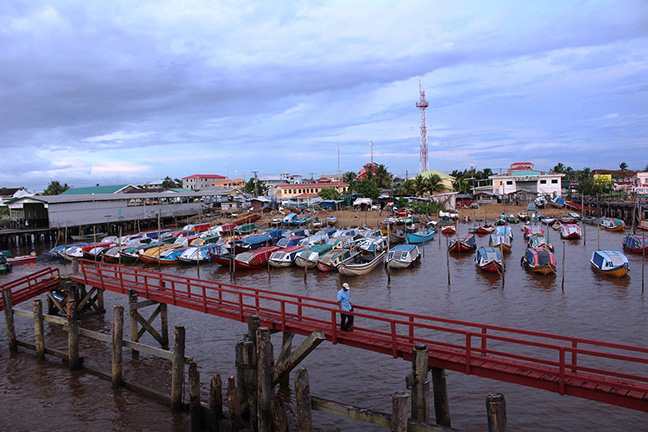The Ministry of Public Infrastructure has submitted an application to the Environmental Protection Agency (EPA) for an Environmental Authorisation to construct a new ferry stelling at Parika.
In an ad in yesterday’s Guyana Chronicle, the EPA said that the proposed ferry stelling will replace the existing one. Works may entail but not be limited to activities such as demolition and excavation works, concrete and timber works, steel fabrication, pile driving, stockpiling of materials and the removal of unwanted construction and demolition wastes, etc, the ad said.
“It is therefore envisaged that the execution of these activities may have some degree of environmental impacts to the surrounding community,” the ad noted.
As such, in keeping with the Environmental Protection Act, an Environmental Impact Assessment (EIA) will be required for such a development before any decision to approve or reject the proposed project.
Members of the public are invited, within 28 days of the notice to make written submissions to the EPA, setting out those questions and matters which they require to be answered or considered in the EIA. The ad noted that a summary of the project can be viewed on the EPA’s website or can be uplifted at the agency’s Ganges Street, Sophia office at a reasonable cost of photocopying.
Last year July, Stabroek News had reported that the Caribbean Development Bank (CDB) was to embark on a feasibility study for the upgrade of the Parika stelling, for which works are expected to begin this year. This newspaper had reported that a US$2.12 million upgrade had been proposed for the Parika stelling which would be funded with grant resources from the United Kingdom.
Guyana has been allocated £53.2 million (around $16 billion) by the UK under its £300 million United Kingdom Caribbean Infrastructure Fund (UKCIF). UKCIF is an ambitious investment undertaken by the UK, which will provide grant funding to improve or create new infrastructure such as roads, bridges and ports to help drive economic growth and development in nine countries across the Caribbean region.
The then UK Prime Minister David Cameron announced the launch of the £300 million fund during his trip to Jamaica in September 2015.






